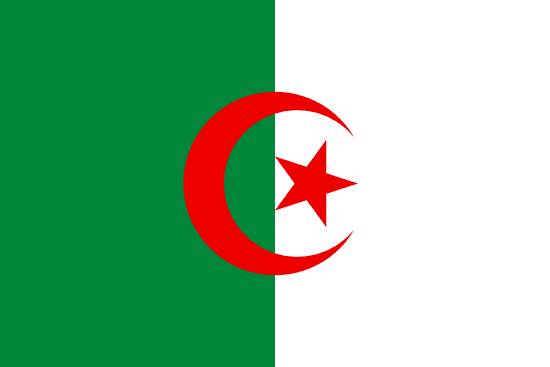"Alger la Blanche | Algiers the White"
About:
Algiers, the capital of Algeria, was founded by the Phoenicians in the 3rd century BC. It was later ruled by the Romans, Byzantines, and various Arab dynasties. The Ottoman Empire took control in 1516, and Algiers became a major hub for piracy. France colonized the city in 1830, leading to a period of European influence. The Algerian War of Independence (1954-1962) ended French rule, and Algiers became the capital of independent Algeria. Today, it's a vibrant city blending modernity and historical heritage.
When to visit:
Algiers, the capital city of Algeria, experiences a Mediterranean climate with hot, dry summers and mild, wet winters. The best time to visit Algiers for a holiday is during the spring months of March to May or in the fall from September to November when the weather is pleasant and the city is less crowded with tourists. During these times, you can enjoy exploring the historic sites, markets, and coastal areas of Algiers without the extreme heat of summer or the rainy season of winter. Be sure to check local events and festivals happening during your visit to fully experience the vibrant culture of Algiers.
When to avoid:
The worst time to travel to Algiers on a holiday is during the summer months of July and August. This period experiences extremely high temperatures, often exceeding 100°F (38°C), making outdoor activities uncomfortable. Additionally, the city can become crowded with tourists during these months, leading to longer wait times at popular attractions and higher prices for accommodations. It is advisable to plan your trip to Algiers during the milder months of spring or autumn to enjoy more pleasant weather and a more relaxing travel experience.
"Winter Season (Nov–Feb)"
Algiers experiences its coldest and wettest season from November to February. Temperatures range from 9°C to 15°C. Rainfall averages around 100mm per month, with December being the wettest. Days are typically short with around 5-6 hours of sunlight due to significant cloud cover. On an average day, a visitor might experience light showers in the morning, followed by cloudy, overcast skies in the afternoon. Despite this, the city maintains a certain charm with fewer tourists, making it a good time to explore local indoor attractions.
"Summer (June-August)"
In Algiers, the warmest part of the year typically spans from June to August, with July being the hottest month. During this period, the average high temperature ranges from 28 to 31 degrees Celsius (82 to 88 degrees Fahrenheit), while the average low temperature varies between 19 to 22 degrees Celsius (66 to 72 degrees Fahrenheit).
Rainfall is minimal during these months, with less than 10mm per month on average, making it the driest season. The city enjoys an average of 10 to 11 hours of sunlight per day, providing plenty of daylight for outdoor activities.
Humidity levels are relatively low during this season, ranging from 60% to 70%, which makes the heat more bearable. As for cloudiness, the sky is mostly clear with occasional partly cloudy days.
A typical day for a visitor during this season would feel warm to hot, especially in the afternoon. However, the heat is usually dry rather than humid, making it more comfortable. The mornings and evenings are cooler and more pleasant. The abundant sunshine and minimal rainfall make it an ideal time for outdoor sightseeing and beach activities.
Language:
In Algiers, the capital city of Algeria, the most commonly spoken language is Algerian Arabic, a variant of Arabic heavily influenced by Berber and French. French, a remnant of Algeria's colonial past, is also widely spoken and used in business, education, and the media. Berber languages, particularly Kabyle, are spoken by the Berber minority. English is increasingly taught in schools but is not widely spoken.




